第6章 THE ROYAL SPORT NAUTIQUE(1)
THE rain took off near Laeken. But the sun was already down; the air was chill; and we had scarcely a dry stitch between the pair of us. Nay, now we found ourselves near the end of the Allee Verte, and on the very threshold of Brussels, we were confronted by a serious difficulty. The shores were closely lined by canal boats waiting their turn at the lock. Nowhere was there any convenient landing-place; nowhere so much as a stable-yard to leave the canoes in for the night. We scrambled ashore and entered an ESTAMINETwhere some sorry fellows were drinking with the landlord. The landlord was pretty round with us; he knew of no coach-house or stable-yard, nothing of the sort; and seeing we had come with no mind to drink, he did not conceal his impatience to be rid of us.
One of the sorry fellows came to the rescue. Somewhere in the corner of the basin there was a slip, he informed us, and something else besides, not very clearly defined by him, but hopefully construed by his hearers.
Sure enough there was the slip in the corner of the basin; and at the top of it two nice-looking lads in boating clothes. The ARETHUSA addressed himself to these. One of them said there would be no difficulty about a night's lodging for our boats; and the other, taking a cigarette from his lips, inquired if they were made by Searle and Son. The name was quite an introduction. Half-a-dozen other young men came out of a boat-house bearing the superscription ROYAL SPORT NAUTIQUE, and joined in the talk. They were all very polite, voluble, and enthusiastic; and their discourse was interlarded with English boating terms, and the names of English boat-builders and English clubs. I do not know, to my shame, any spot in my native land where I should have been so warmly received by the same number of people. We were English boating-men, and the Belgian boating-men fell upon our necks. Iwonder if French Huguenots were as cordially greeted by English Protestants when they came across the Channel out of great tribulation. But after all, what religion knits people so closely as a common sport?
The canoes were carried into the boat-house; they were washed down for us by the Club servants, the sails were hung out to dry, and everything made as snug and tidy as a picture. And in the meanwhile we were led upstairs by our new-found brethren, for so more than one of them stated the relationship, and made free of their lavatory. This one lent us soap, that one a towel, a third and fourth helped us to undo our bags. And all the time such questions, such assurances of respect and sympathy! I declare Inever knew what glory was before.
'Yes, yes, the ROYAL SPORT NAUTIQUE is the oldest club in Belgium.'
'We number two hundred.'
'We' - this is not a substantive speech, but an abstract of many speeches, the impression left upon my mind after a great deal of talk; and very youthful, pleasant, natural, and patriotic it seems to me to be - 'We have gained all races, except those where we were cheated by the French.'
'You must leave all your wet things to be dried.'
'O! ENTRE FRERES! In any boat-house in England we should find the same.' (I cordially hope they might.)'EN ANGLETERRE, VOUS EMPLOYEZ DES SLIDING-SEATS, N'EST-CE PAS?'
'We are all employed in commerce during the day; but in the evening, VOYEZ-VOUS, NOUS SOMMES SERIEUX.'
These were the words. They were all employed over the frivolous mercantile concerns of Belgium during the day; but in the evening they found some hours for the serious concerns of life. I may have a wrong idea of wisdom, but I think that was a very wise remark.